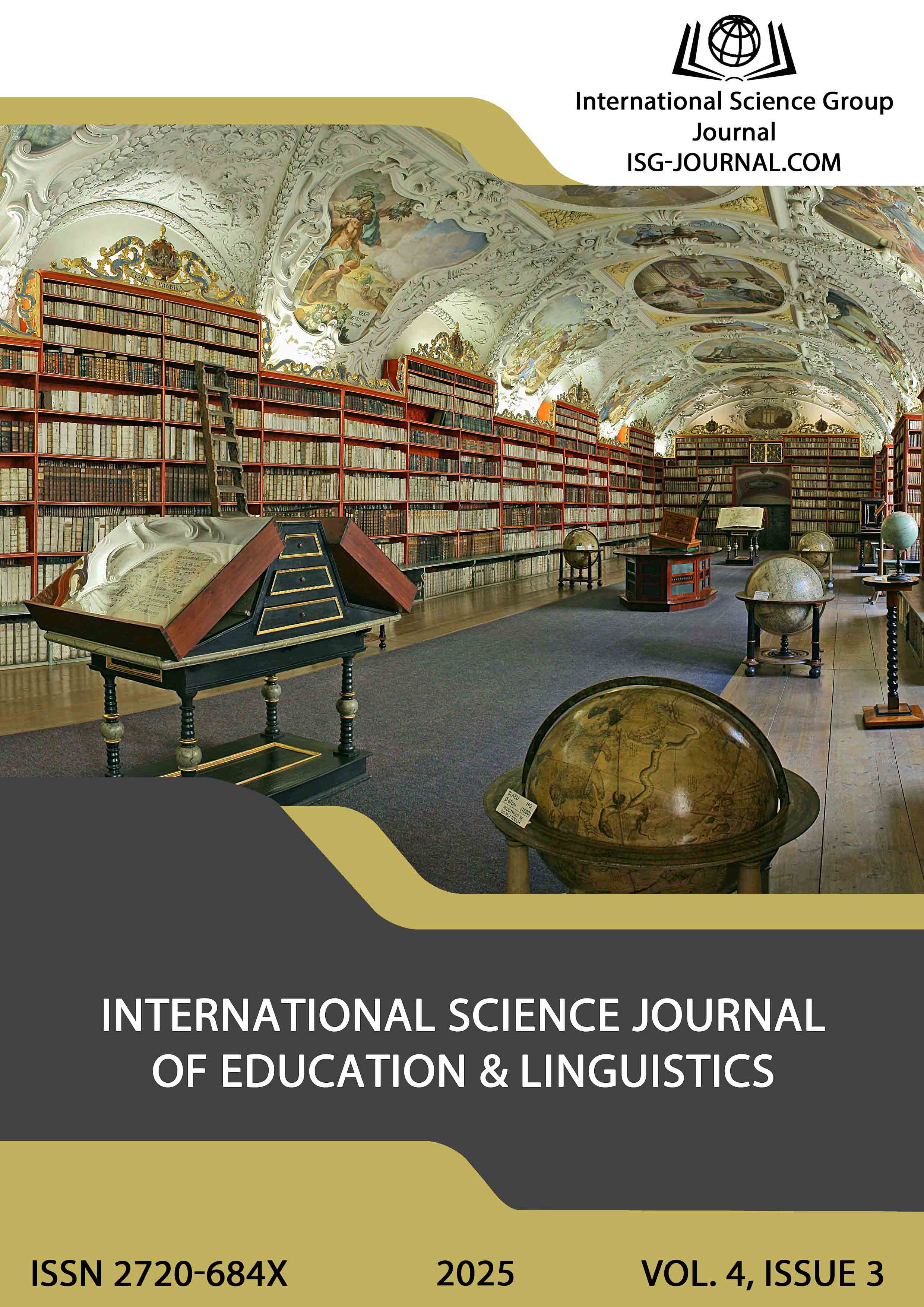The impact of research on the formation of readiness of students of economic specialties for learner autonomy using digital technologies on sustainable development goals
DOI:
https://doi.org/10.46299/j.isjel.20250403.04Keywords:
autonomy, learner autonomy, digital technologies, sustainable development, goals of sustainable development, readinessAbstract
The article presents a relevant study devoted to the formation of readiness of students of economic specialties for learner autonomy using digital technologies in the context of the implementation of the UN Sustainable Development Goal No. 4 – “Quality Education”. It is emphasized that the use of digital tools contributes to increasing the accessibility, quality and inclusiveness of education, allows adapting the educational process to the individual needs of students, in particular those who have limited access to traditional resources or require special learning conditions. The use of digital technologies also contributes to the development of professional skills necessary for successful employment in the conditions of the modern labor market, and improving the qualifications of teachers. The study has an interdisciplinary impact and is related to the achievement of other Sustainable Development Goals - such as SDG 8 “Decent work and economic growth”, SDG 9 “Industry, innovation and infrastructure” and SDG 10 “Reduced inequality”, the development of innovation and technology, as well as reducing inequality in access to education. The formation of digital literacy and autonomous learning increases the competitiveness of students, contributes to the development of innovative educational infrastructure and overcoming social and territorial barriers. Thanks to the ability to independently navigate the information environment, work with digital platforms and educational resources, students have the opportunity to study at a convenient pace, develop critical thinking, analytical skills and acquire relevant knowledge for the real professional environment. This is especially important in the conditions of the dynamic development of the digital economy, which requires future specialists to be flexible, adaptable and capable of continuous learning. Prospects for further research in the direction of improving educational approaches, integrating modern digital solutions, developing human capital, implementing innovative methods and expanding international cooperation are outlined. The presented study is a significant contribution to the modernization of higher education, the formation of digitally literate and independent specialists capable of functioning effectively in a globalized economy.References
Програма розвитку ООН. (n.d.). Цілі сталого розвитку. https://www.undp.org/uk/ukraine/tsili-staloho-rozvytku
Anderson, C. A., & Krathwohl, D. R. (2017). Educational technology and the evolving role of the teacher. Journal of Educational Technology, 23(1), 45-59. https://doi.org/10.1016/j.jeduc.2017.01.003
Bates, T. (2020). Teaching in a digital age: Guidelines for designing teaching and learning for a digital age. Tony Bates Associates Ltd.
Brown, M., & Green, T. (2018). The integration of technology in the classroom: Research and practice. Journal of Higher Education, 12(3), 27-44. https://doi.org/10.1080/00221546.2018.1447605
Garrison, D. R., & Kanuka, H. (2004). Blended learning: Uncovering its transformative potential in higher education. The Internet and Higher Education, 7(2), 95-105. https://doi.org/10.1016/j.iheduc.2004.02.001
Johnson, L., & Adams Becker, S. (2018). The Horizon Report: 2018 Higher Education Edition. EDUCAUSE. https://www.learntechlib.org/p/181359/
McLoughlin, C., & Lee, M. J. W. (2010). Personalizing learning: Students' perspectives on e-learning and social media. Australian Journal of Educational Technology, 26(1), 50-68. https://doi.org/10.14742/ajet.1122
Palloff, R. M., & Pratt, K. (2013). Lessons from the virtual classroom: The realities of online teaching. Jossey-Bass.
Reiners, T., & Wood, L. (2020). The impact of digital technology on learning autonomy in higher education. Journal of Educational Technology & Society, 23(2), 98-107. https://doi.org/10.1080/10494820.2020.1787355
Siemens, G. (2013). Learning analytics: The emergence of a new learning technology. International Journal of Emerging Technologies in Learning (iJET), 8(1), 4-12. https://doi.org/10.3991/ijet.v8i1.2447
Smith, S., & Watson, J. (2019). The challenges and opportunities of digital learning in economics education. International Journal of Educational Research, 20(2), 220-235. https://doi.org/10.1016/j.ijer.2019.05.003
Смирнов, А. О. (2020). Інноваційні підходи до формування цифрової компетентності студентів економічних спеціальностей. Журнал освіти та інновацій, 12(3), 45-58.
Петрова, Л. М. (2021). Роль цифрових технологій у підготовці економістів: методи та стратегії. Освітні дослідження та практики, 8(2), 91-105.
Іванова, Т. В. (2019). Цифровізація та її вплив на розвиток економічних професій. Економіка і суспільство, 14(1), 233-245.
Pasternak, I. V. (2023). Formation of digital competence of future economists. Economics and Education, (1), 55-62.
Petrenko, L. M. (2022). Digitalization of education: Tools and challenges. Educational Space of Ukraine, (48), 31-38.
Sydorenko, T. P. (2021). Self-education as a factor in lifelong professional development. Pedagogical Discourse, (30), 12-18.
Shevchenko, O., & Ivanova, N. (2020). Internationalization of higher education in Ukraine. Journal of Global Education, 5(2), 45-52.
Downloads
Published
How to Cite
Issue
Section
License
Copyright (c) 2025 Natalia Volkova, Inna Chyzhykova

This work is licensed under a Creative Commons Attribution 4.0 International License.





